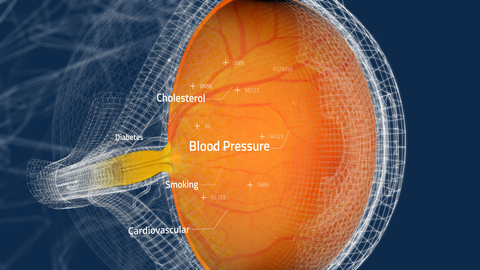AUCKLAND, New Zealand– Toku, Inc., a commercial medical device company specializing in imaging technology and AI, announced that the U.S. Food and Drug Administration (FDA) has granted Breakthrough Device designation to its patented CLAiR technology. The CLAiR platform, if cleared by the FDA, will be the first medical device in the US market that can provide affordable, point-of-care and non-invasive evaluation for risk of cardiovascular disease (CVD) using fundus retinal images through a routine eye exam. Working with its partners, Toku is aiming to establish the largest network for CVD risk assessment across the US and then globally. Toku recently joined the Innovator’s Network, part of the American Heart Association’s Center for Health and Technology & Innovation. Inclusion in this group will enable Toku to collaborate easily with other cutting-edge companies creating the next generation of high-tech healthcare solutions as the Company works to bring the CLAiR platform to scale commercially, pending clearance from the FDA.
The retina, located in the back of the eye, is the only transparent part of the vascular system and can be photographed easily and non-invasively. The CLAiR technology is designed to integrate readily with existing retinal imaging cameras, to provide real-time CVD risk assessments with accuracy comparable to traditional cardiovascular risk assessment tools (which typically include multiple measurements and blood tests and can take weeks). The AI-powered CLAiR technology can interpret the many tiny signals conveyed through retinal images of blood vessels to identify elevated cardiovascular risk that may be caused by genetics or risk factors such as hypertension or high cholesterol. These results can then be shared with the patient’s primary care physician, who can initiate a comprehensive cardiovascular evaluation. Retinal imaging is routinely performed in a variety of eyecare settings and is increasingly being implemented in primary care clinics and pharmacies across the US. Once cleared by the FDA, the CLAiR technology will provide healthcare professionals across multiple settings with the ability to check for elevated cardiovascular risk before the onset of clinical disease.
“Toku’s mission is to make identifying disease accessible for everyone, everywhere, all the time. The Breakthrough Device designation that the FDA has granted to our CLAiR technology platform is a validation of the tremendous potential our CLAiR AI technology can provide to the tens of millions of patients who may unknowingly be at risk of a devastating cardiovascular condition,” said Associate Professor Ehsan Vaghefi, CEO and Co-Founder of Toku. “This designation greatly de-risks our clinical development and regulatory pathway for the technology, as the FDA’s Breakthrough Devices program offers medical device companies accelerated review processes, enhanced guidance, and prioritized evaluation, facilitating quicker market access for innovative technologies and encouraging the development of devices that significantly improve patient care.”
“I am excited by the potential of Toku’s CLAiR technology as it can help improve health equity both in the United States and elsewhere in the world,” said Michael V. McConnell, MD, MSEE, Clinical Professor of Preventive Cardiology, Stanford University and author of Fight Heart Disease Like Cancer. “As a clinician, I see broadening access to quality care and prevention as a critical issue, and the CLAiR retina scan technology may help improve the cardiovascular health of more people worldwide.”
“Predictive analytics technology, provided it has been proven to be accurate and applicable to the population using it, has tremendous potential to benefit patients by identifying those at highest risk so treatments and preventive measures can be initiated quickly. The medical literature has published many examples using different types of eye imaging to predict risk of other systemic conditions beyond cardiovascular disease, such as neurologic or kidney disease. Therefore, further developing this type of technology is very exciting as cardiovascular disease remains a significant cause of morbidity and mortality in the whole country,” said April Maa, MD, Professor of Ophthalmology, Emory University School of Medicine.


